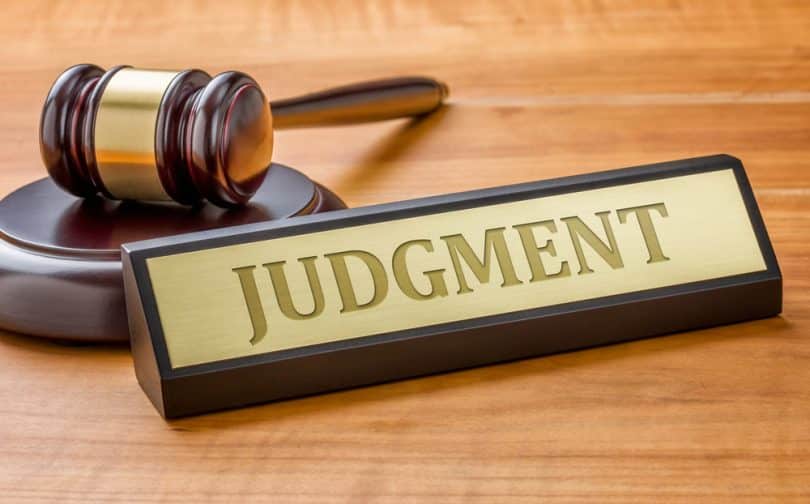(888) 737-7690
Judgment Recovery
Judgment Recovery JRS Private Investigators
Judgment recovery investigators, often private investigators, are hired to help creditors locate and recover assets to satisfy a court-ordered judgment. They use various techniques to gather information about the debtor's assets, including researching public records, conducting surveillance, and interviewing witnesses. This information is then used by the creditor to take legal action to seize the assets.

Free Consultations
How JRS Investigations Help Recovery Judgments ?
-
Debtor Location:
When debtors try to avoid payment by hiding or moving, investigators use various techniques, including background checks, interviews, and surveillance, to find their location. Debtor location judgment recovery investigators are individuals or firms specializing in locating debtors and assets to assist judgment creditors in recovering owed money. They act as detectives, identifying assets and enforcing collections, essentially helping to make a judgment "collectible".
-
Legal Enforcement:
Once assets or the debtor are located, the information is provided to creditors, who can then utilize legal tools like wage garnishment, asset seizure, and other enforcement measures. Legal enforcement means the process by which laws, rules, and agreements are carried out and adhered to, often through the actions of government agencies and institutions. It involves preventing, detecting, investigating, and taking action against those who violate laws.
-
Challenges:
Asset recovery can be complex, with debtors potentially hiding assets through multiple entities, using complex financial transactions, or even resisting legal proceedings. Judgment recovery investigators face a complex landscape of challenges, including the need for detailed information gathering, navigating legal complexities, and the potential for asset protection strategies employed by debtors. They must often work with limited information, potentially involving long hours and travel. The goal is to identify assets that can be seized to satisfy a judgment, requiring a skilled understanding of financial records and legal procedures.
-
Technological Advancements:
The rise of digital assets and complex financial transactions requires investigators to adapt their methods and utilize specialized databases and tools. Technological advancements have revolutionized criminal investigations, offering new tools and methods to collect, analyze, and interpret evidence more effectively. This includes advancements in forensic science, digital forensics, data analysis, and even predictive policing.
-
Collaboration with Legal Professionals:Judgment recovery often involves close collaboration between private investigators and legal professionals, who can guide the process through the legal intricacies.
Expert Guided Civil Investigations
As a professional private investigations agency with extensive experience in civil investigations, Dewitt Detective Agency is committed to providing their clients with effective and actionable results.
More often than not, civil matters can be complex and emotionally charged, we work closely with our clients to understand their unique needs and goals. Our approach to civil investigations involves a combination of specialized skills, advanced technology, and meticulous attention to detail.
Whether we are conducting surveillance, performing background checks, or analyzing financial records, we always strive to uncover the information and evidence needed to support our clients’ legal, financial and personal objectives.

Recovery Investigations
If you have been awarded a judgment and haven’t been able to collect, you are not alone; over 80% of judgments issued in the United States go uncollected. Obtaining a judgment is usually the easy part, getting paid is usually the most difficult. If you have been awarded a judgment in court and have not been able to collect what is owed to you, we can help. Capital Investigations is one of the premier judgment recovery firms in the country. Capital Investigations lets you take advantage of both worlds:
- Judgment Evaluations
- Specialize in Old Judgments
- In House Financial Investigators
- Top Collection Attorneys
- Collected Small Commercial Judgments to Seven Figure Judgment
Top Five Reasons to Hire JRS Private Investigators Judgement Recovery
1. Uncovering hidden assets
- Hidden accounts: This includes tracing bank, brokerage, and retirement accounts that the debtor has not disclosed.
- Real estate: Investigators search property ownership records for undeclared real estate holdings, even those titled under another name or business entity.
- Luxury items: A PI can identify luxury assets such as expensive cars, boats, or jewelry.
- Digital assets: Some investigators use modern tools, like blockchain analysis, to hunt down complex digital assets, such as cryptocurrency.
2. Locating elusive debtors (skip tracing)
- Analyze address history to determine the debtor's movements.
- Monitor social media for clues about their whereabouts, activities, or associations.
- Verify employment to identify sources of income for wage garnishment.
3. Investigating fraudulent transfers
- Recent financial transactions and business ownership records.
- Property transfers and sales history to prove an intent to avoid payment.
- Shell corporations that may have been created solely to hide funds.
4. Collecting admissible evidence through surveillance
- Lavish spending and the purchase of expensive goods or real estate.
- Financial inconsistencies that contradict claims of insolvency.
- Undisclosed business operations or unreported income.
This evidence can strengthen your case and enable your legal team to seize assets or garnish wages.
5. Supporting legal strategy
- Provide detailed investigative reports and supporting evidence that comply with legal standards.
- Testify in court to validate their findings, providing credible, third-party testimony.
- Assist with legal filings for asset seizure or garnishment, providing the concrete proof needed to get a court order.
